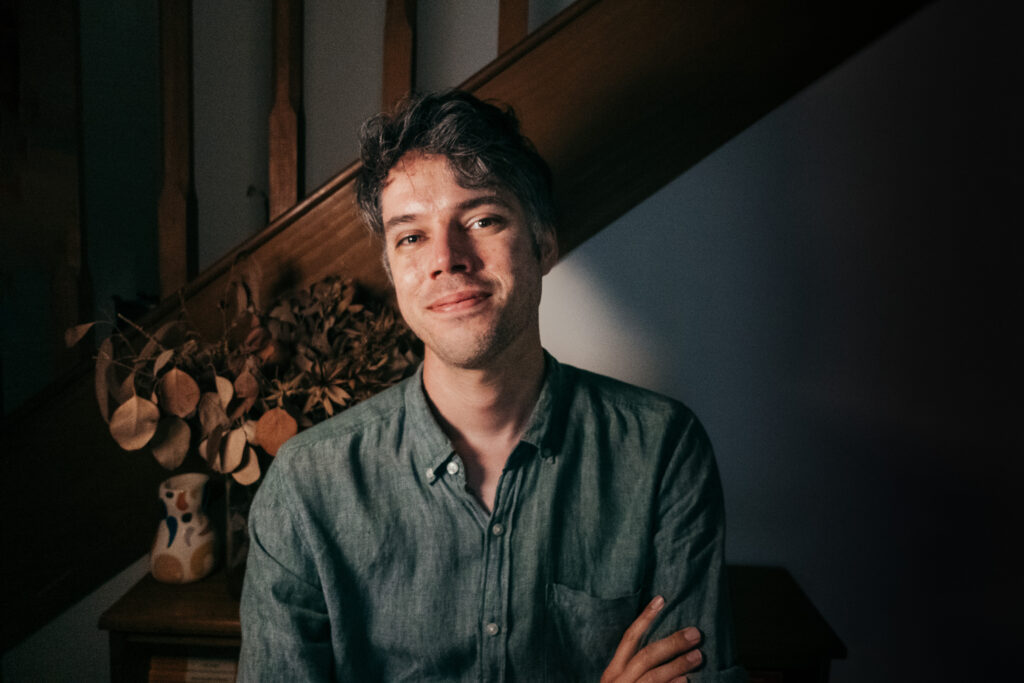
Connor Tomas O’Brien is a nature writer, graphic designer and educator who lives on Wurundjeri land in Naarm/Melbourne.
His design practice at Studio Sometimes involves working with environmental + arts organisations on web development, print design, storytelling and strategy.
In his recent nature writing, he has explored the uncanny beauty of disturbed ecologies in Victoria — from box-ironbark forests growing on turned-over goldmines, to orchids beside acid rivers.
He teaches in the Professional Writing and Editing program at RMIT University, is the website producer for Overland, and was the founding director of the Digital Writers’ Festival.
You might like to subscribe to Change is Hard, a (very occasional) newsletter about the environment and activism and the small things we can do to make things better.
He’s @mrconnorobrien on Instagram and Threads, or on email at connor[at]connortomas.com.
Nature writing
- Notes on a Disappearance (The Monthly, winner of the 2023 Nature Writing Prize):
“If to ‘see’ a cryptic animal involves setting one’s senses upon it, to perceive it is to pay attention to the space surrounding it.” - Filling the void: Building Eden on the spoils of mining (Griffith Review): “When abandoned mines are located in out-of-the-way places, populated by those with little political influence, tailings may simply be left to blow in the wind.”
- Road Ecology (Shortlisted for the 2022 Kill Your Darlings Creative Non-Fiction Essay Prize):
“We have learned to think of Australia’s grid of roads and highways as ecological ‘non-places’. Tracing a trail to its end allows an undoing of infrastructure, and a reminder of the floodplain, wetland, scrub and forest beneath the bitumen.” - Dark ecotourism at Toolangi: the invisible destruction of a forest (Overland):
“The Toolangi Forest has become a mosaic of tourist destinations and illegal protest zones.”
Assorted essays
- City of Faces (Wheeler Centre): “When it comes to 21st Century surveillance, what won’t we countenance?”
- Why Can’t Scientists Cry?: the stigmatisation of emotion in science (Wheeler Centre): “An exploration of how scientists are grappling with feelings of powerlessness – and learning (slowly) to present themselves as passionate and opinionated public figures.”
- Miranda July’s Internet Interventions (Wheeler Centre): “From encouraging strangers to document their bald spots, to forwarding Kirsten Dunst’s email correspondence to 100,000 readers, Miranda July’s projects are much like her fiction – drawing us closer to strangers, and toward strangeness itself.”
- Can Capitalism Reinvent Itself? (Wheeler Centre): “For decades, big businesses have profited hugely by turning a blind eye to unscrupulous behaviour. As consumers, are we finally wising up? An exploration of the rise of ethical enterprise – and a radical new theory of capitalism as a tool for good.”
- It’s Not Easy Being Green: when young writers meet opportunistic editors (Wheeler Centre): “Sometimes, for emerging writers, obscurity is better than blinding premature exposure.”